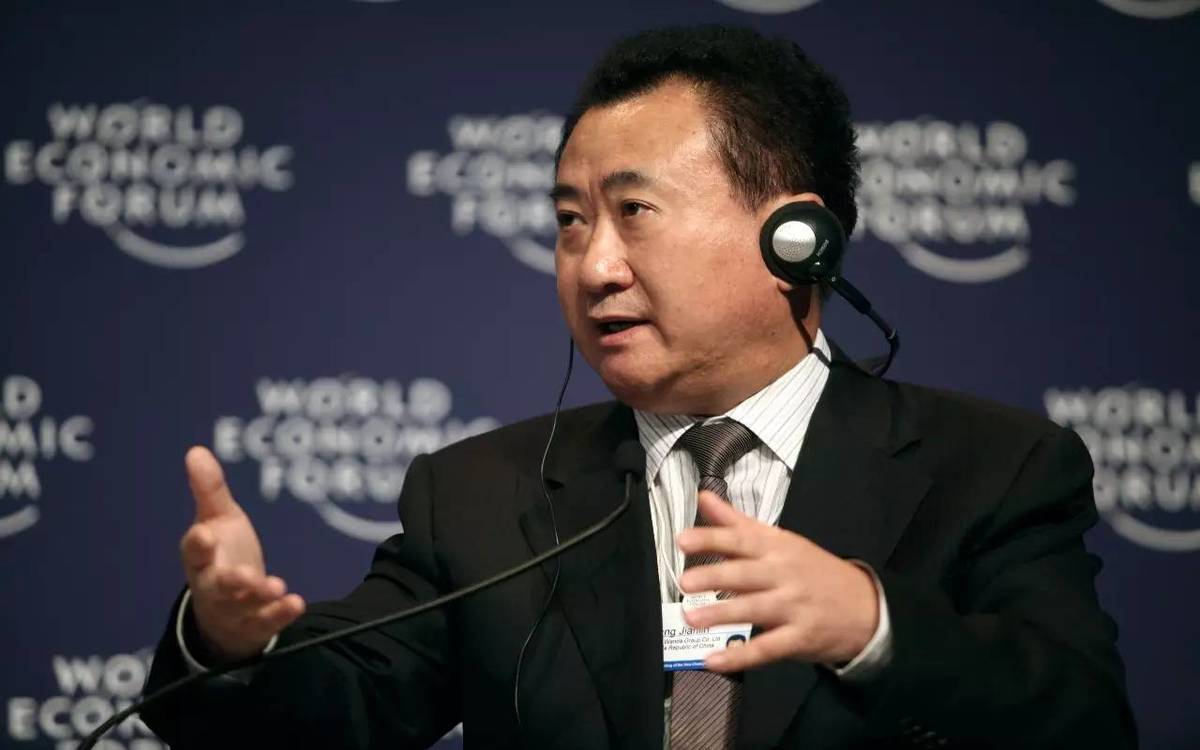It’s perfectly natural that Thomas Tull, Legendary’s CEO and the man behind films such as The Dark Knight and The Hangover, and veteran Beijing-based producer Peter Loehr, who heads Legendary East and has been in China since the dawn of the current movie biz boom, should be Wang’s go-to guys. Tull has carved his own deal-making path in cutthroat Hollywood, and Loehr, who speaks fluent Chinese, helped engineer Legendary’s 2013 tie-up with the state-run China Film Group, the sole licensed importer of Hollywood films into China. That deal paved the way for Legendary’s co-production of The Great Wall, the $150 million English-language action adventure due in theaters worldwide this November from veteran director Zhang Yimou. Starring Hollywood A-lister Matt Damon, the film is sure to get a solid release in AMC theaters across the U.S., where, unlike in China, there are no government-imposed import restrictions, only the forces of supply and demand.
It also makes sense that Wanda should want to back movies that at once celebrate China and project an image of the nation approved by its leaders—and then send those movies into America, where, for now anyway, more movie tickets sell each year than anywhere else.
- Related reading from our partners at Jing Daily: Wanda’s Private Hospitals Aim to Keep Rich Medical Tourists at Home
The great challenge for anybody spending millions to make movies is to ensure that they appeal to the widest possible audience. Wanda, however, is used to operating in a country where what’s right, the messaging of a thing, often is not open to public debate and is molded by a few men at the top. Though there’s already talk of a Wanda-Legendary IPO, signaling accountability to the market, Tull told the press in Beijing that there was “no road map” for the new company, a “wait-and-see” message all too familiar to China-watchers forever asked to be patient with Beijing as it talks about reform.
I hope that in its embrace of Legendary, Wanda checks its natural impulse to check in with the Party in Beijing and doesn’t smother the very creativity at the core of the value of the Hollywood studio. Let’s not forget the men at the vanguard of the business of U.S.-China cultural exchange (which also happens to have produced a commercial bonanza) are the people most responsible for the images that we citizens of the two largest economies on Earth see of one another. And let’s not forget that these men are operating under the looming encouragement of Chinese President Xi Jinping—without whose approval I don’t imagine this deal could have been possible.
A 2014 speech Xi gave on arts and culture bears some examination. In it, the unelected leader of the world’s largest country called on Chinese moviemakers to eschew the foreign and get into the business of making movies that, as he put it, should “take patriotism as a theme leading the people to establish and maintain correct views of history, nationality, statehood, and culture while firmly building up the integrity and confidence of the Chinese people.”
Wanda and its chairman are beholden to the Chinese Communist Party, whose leaders’ ideas of entertainment have yet to produce a blockbuster success and certainly aren’t motivated by profit nor accountable to the market. While Wanda invests in Hollywood to make money, the deal sees Legendary unwittingly becoming one of the most powerful channels for Beijing’s worldview, a worldview that bars open discussion of the jailing of dissidents and the disappearing of booksellers.
If Legendary succumbs to pressure from Wanda and the Party behind it to make movies that adhere to the Party’s vision of the world, I expect that American moviegoers used to a free press would reject any ham-fisted silver screen propaganda. The result? Wanda and Legendary would lose money on their movies here in the U.S.
But maybe Wanda’s acquisition of a Hollywood studio will end up proving a loss-leader. The payoff? A gained ability to make better movies to the satisfaction of the Party back home—movies that employ Hollywood craftsmanship to feed the growing ranks of China’s moviegoers. After all, what better way to divert attention from societal unrest than an action adventure blockbuster or a madcap comedy?
—A version of this article first appeared on ChinaFile, where Jonathan Landreth is managing editor.[/fusion_text]






